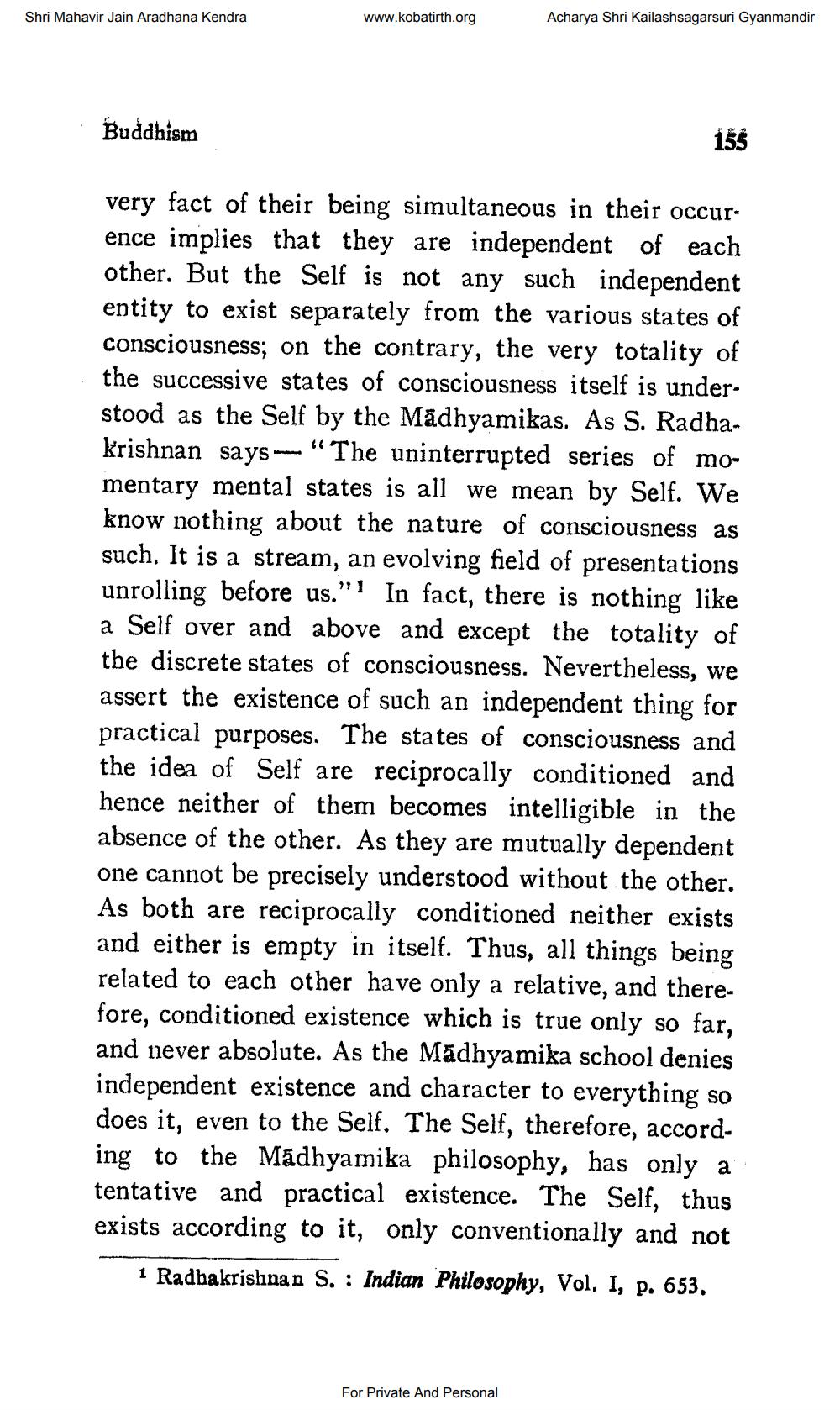________________
Shri Mahavir Jain Aradhana Kendra
www.kobatirth.org
Acharya Shri Kailashsagarsuri Gyanmandir
Buddhism
15$
very fact of their being simultaneous in their occurence implies that they are independent of each other. But the Self is not any such independent entity to exist separately from the various states of consciousness; on the contrary, the very totality of the successive states of consciousness itself is understood as the Self by the Madhyamikas. As S. Radhakrishnan says "The uninterrupted series of momentary mental states is all we mean by Self. We know nothing about the nature of consciousness as such. It is a stream, an evolving field of presentations unrolling before us."! In fact, there is nothing like a Self over and above and except the totality of the discrete states of consciousness. Nevertheless, we assert the existence of such an independent thing for practical purposes. The states of consciousness and the idea of Self are reciprocally conditioned and hence neither of them becomes intelligible in the absence of the other. As they are mutually dependent one cannot be precisely understood without the other. As both are reciprocally conditioned neither exists and either is empty in itself. Thus, all things being related to each other have only a relative, and therefore, conditioned existence which is true only so far, and never absolute. As the Madhyamika school denies independent existence and character to everything so does it, even to the Self. The Self, therefore, according to the Madhyamika philosophy, has only a tentative and practical existence. The Self, thus exists according to it, only conventionally and not
1 Radhakrishnan S. : Indian Philosophy, Vol. I, p. 653.
For Private And Personal




